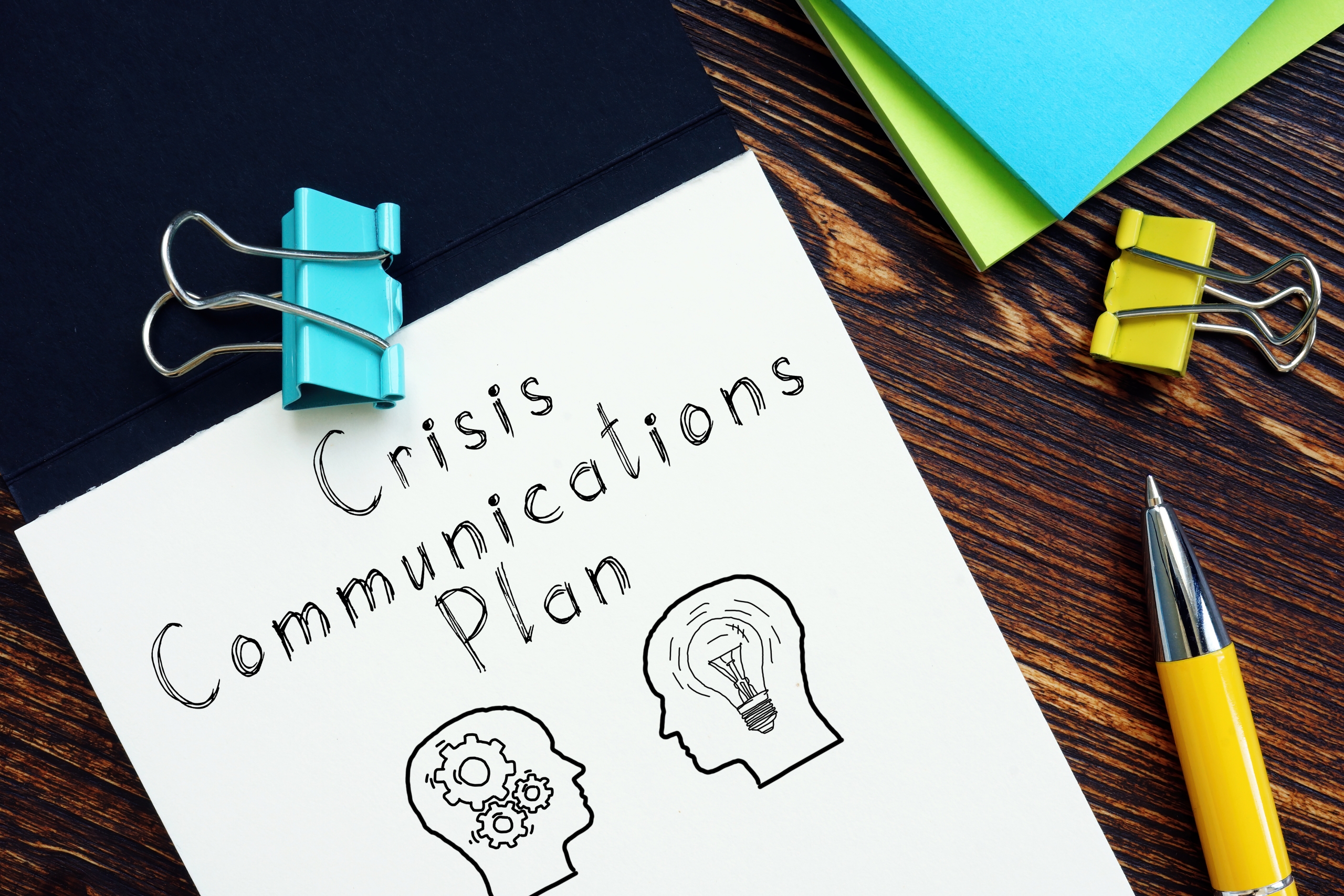
What is a crisis communications plan?
What is a crisis communications plan?
A crisis communication plan is an important resource for any organisation. An Alder crisis communication plan is a bespoke manual which contains practical step-by-step guidance, media handling tips, valuable contact details and template communications that ensure organisations can deal with the communication demands of any crisis.
At Alder we develop crisis communications plans for our clients across a range of sectors, ensuring that they are fully prepared for a variety of challenging and complex situations that may arise at any moment.
What is the purpose of a crisis communications plan?
In essence, a crisis communications plans purpose is to put the invaluable measures in place so that an organisation, if a crisis does occur, can handle it effectively. A crisis communication plan is absolutely essential in guaranteeing that the necessary measures are in place and expert information is at hand for an organisation to weather the most challenging of storms.
Why is a crisis communications plan important?
During a crisis, one of the most difficult things to navigate is the pressure of time, and a situation quickly becomes very difficult to handle when an organisation is playing catch-up’. With a crisis communications plan, your team will have more time to devote to priorities, resulting in a seemingly unmanageable and alarming situation becoming manageable.
As well as placing the control back in the hands of an organisation, a crisis communications plan from Alder ensures organisations are aware of the minefield of reputational risks that surround a crisis. As a result of the time pressure and the emotionally draining nature of a crisis, senior leaders are prone to mistakes which may only become apparent once the crisis moment has passed.
Whether its the inappropriate timing of a statement, the acceptance of liability, or the failure to sympathise with affected parties, communications in a crisis have the potential to make or break an organisations long-term reputation one mistake at a crucial time can define an organisation forever. A crisis communications plan minimises these risks and ensures that should a crisis occur, an organisation already has the guidance, contacts, and templates to navigate the complex situation at pace.
How do Alder develop a crisis communications plan?
Alder develops crisis communications by combining an in-depth consultancy with a bespoke analysis of the organisation from our specialist partners, who bring decades of experience handling crises across a range of sectors. We draw upon our real-life experience of the highest-profile media stories and apply it to the possible scenarios an organisation may find themselves in.
What should be included in a crisis communications plan?
A crisis communications plan is a vital tool for organisations to effectively manage and respond to unexpected events or crises. Here is a summary of the key components that should be included in such a plan:
- Scenario Plans
Identifying potential crisis scenarios based on industry intelligence and existing vulnerabilities is an essential part of any crisis plan. Mapping out your key reputational risk areas and developing a step-by-step guide to responding to and managing media and stakeholder enquiries will increase your teams confidence and efficiency when dealing with a live crisis issue.
- Checklists
Your crisis communications plan should include checklists to ensure all necessary actions and precautions are made in a timely manner. Essential items may include tasks such as activating emergency response teams, notifying key personnel, securing physical assets and engaging legal counsel.
- Stakeholder Management Advice
Identify and prioritise your key stakeholders, such as employees, customers, partners, regulators, the general public and the media. You will need to develop strategies for effective communication and engagement with each stakeholder group remember to consider their specific needs, concerns, and expectations.
- Template Communications
While you should avoid being overly prescriptive, templates for media statements and letters to stakeholders can be extremely useful when managing multiple demands at once in a crisis situation. It is important your template communications incorporate your organisation’s tone and voice and avoid any hostages to fortune or liability issues.
- Media-handling Protocols
Your plan should provide clear guidance on how your organisation will handle a surge of media enquiries, such as who is empowered to respond on behalf of the organisation; how frontline staff should manage incoming calls and emails from journalists; and how the organisation would manage broadcast media present on-site.
- Social Media Strategy
During a crisis, it is important to monitor social media channels for mentions of your organisation. Your crisis communications plan should also coordinate social media messaging with other communication channels to ensure consistency and ensure questions, concerns and misinformation are responded to promptly.
- Online Reputation Protection
As well as managing social media you will need to implement strategies to protect and manage your organisation’s wider online reputation. You can do this by monitoring all digital and social media platforms for negative sentiment and content that may require a response. Following a crisis, it is important to engage in proactive reputation-building efforts to strengthen trust and credibility over time.
- Key Contact Details
It is vital your crisis communications plan is maintained with an up-to-date list of contact information for key personnel, including senior executives, crisis management team members, legal counsel and public relations representatives. You should also ensure this information is easily accessible during a crisis, so ensure you have online and hardcopy versions at the ready.
Remember, this is just a summary, and developing a comprehensive crisis communications plan requires detailed analysis of your organisation’s specific needs and risks. It’s essential to regularly review, update, and practise the plan to ensure preparedness and effective crisis management.


